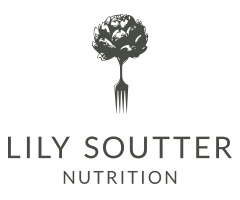A recent study suggested that eggs may increase the risk of cardiovascular disease [1] but should we take this study as fact? It can be easy to read conflicting headlines and struggle to wean the truth about nutrition. Science can be complex and there are many shades of grey, which is why I’ve broken down the confusing research so you don’t have too…
Should we stop eating eggs?
No, eggs can be enjoyed as part of a balanced diet. Whilst this was a large well-designed study, it was observational in nature which means that the results open other confounding factors. The dietary information used within the study came from a self-reported diet survey 17 years prior to the levels of heart disease and early death being checked. This is a major limitation as the participants long-term eating patterns weren’t assessed, and their diet could have changed over the years. The overall risk of death found within the study was tiny, whereas previous larger studies have found no impact on egg consumption and risk.
What’s a balanced approach to egg consumption?
Many fear eggs due to their high levels of cholesterol, however, research has shown that dietary cholesterol does not significantly impact serum (blood) cholesterol levels. Eggs can be enjoyed as part of a balanced diet.
Evidence suggests that high levels of saturated fat within our diet can put us at risk of increased cholesterol levels, rather than foods that are naturally high in cholesterol. Saturated fat includes butter and other high-fat dairy products, fatty cuts of meat, coconut oil, lard, and fried foods.
Whilst there is nothing wrong with having some saturated fat within the diet, consumption of a higher ratio of polyunsaturated fats (olive oil, oily fish, avocado, nuts, seeds) in comparison, can help to maintain healthy blood cholesterol levels.
What is the nutritional value of eggs?
Eggs are a source of high-quality vegetarian protein, B vitamins and even vitamin D.
Within the UK we have no guidelines or upper limit for egg consumption, however, as with any food, it is important to consume in moderation as part of a balanced diet. Whilst there are no set guidelines with regards to intake, some research suggests that consumption of up to 3 eggs per day won’t increase the risk of heart disease.
On the other hand, those who have been diagnosed with hypercholesterolaemia should consume no more than 3-4 eggs per week.
Presumably, we can’t label eggs “good” or “bad” – does a lot depend on the rest of your diet e.g. lots of red meat?
Evidence suggests that high levels of saturated fat within our diet can put us at risk of increased cholesterol levels, rather than foods naturally high in cholesterol.
It is unhelpful labelling eggs all good or all bad. Focusing on the way we cook eggs could be more beneficial. Poaching, boiling or frying with monounsaturated fats such as olive oil are all ways of reducing our saturated fat intake.
FREE 15 MINUTE NUTRITION CONSULTATION
Lily is a London Nutritionist who graduated from Newcastle University with a BSc (Hons) degree in Food and Human Nutrition (AfN accredited) where she was awarded the Sage Faculty for Excellence Scholarship on an annual basis. She then went on to complete a 2-year post-graduate Diploma in Nutritional Therapy and is currently working towards her MSc in Nutritional Medicine (AfN accredited) at the University of Surrey. Lily’s extensive knowledge of the science of food and health, enables her to regularly write for The Times, The Telegraph, The Daily Mail, The Independent, Women’s Health and Cosmopolitan.
Her frequent TV appearances include ITV’s This Morning with Holly Willoughby and Phillip Schofield, and ITV’s primetime series Save Money: Lose Weight with Dr Ranj Singh. Lily’s passion is to simplify the science around nutrition, to provide health hacks and smarter eating strategies to empower people to enjoy a healthy and successful lifestyle. Her specialities lie in workplace wellness, implementing nutrition-focused wellbeing programmes within corporate organisations across the UK.
Lily also sees individual clients from her clinic in Chelsea and a private medical practice based in Notting Hill.



